Every Life Has God-Given Potential: Ben Higgins & John Bevere
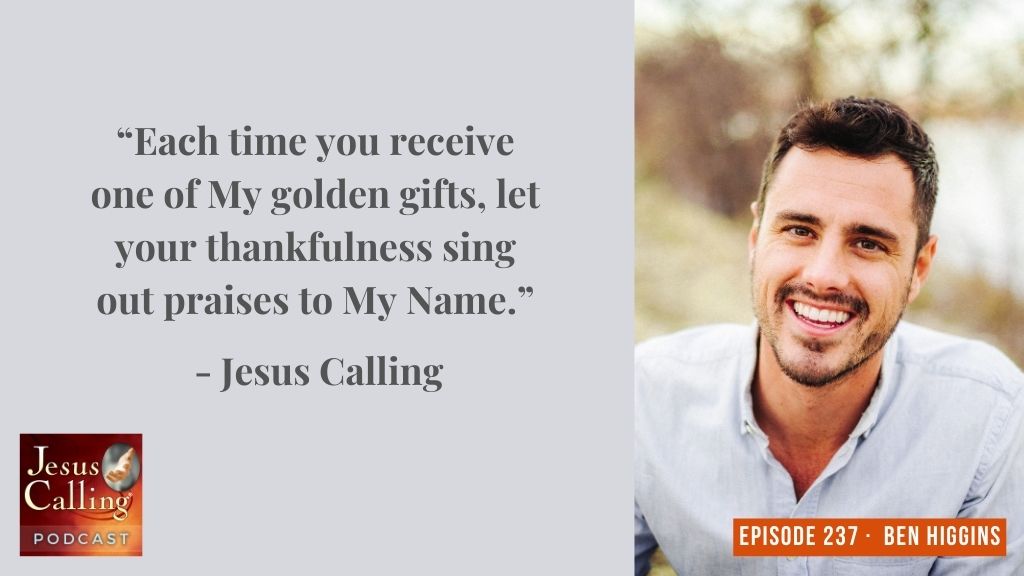
Ben Higgins: Even [in] Jesus’s final moments, where He was walking among people that He knew was going to betray Him, yet He still loved them, He still cared for them—how we love our enemies is the mark of if we really are loving people or not.
Every Life Has God-Given Potential: Ben Higgins & John Bevere – Episode #237
Narrator: Welcome to the Jesus Calling Podcast. Whether we realize it or not, each of us has a special gift to give the world. It could be our time, our talents, or our willingness to work hard at whatever we do in life. Sometimes we may miss the opportunity to use that God-given gift because we’re either striving for something else, or we’re not open to where God is leading us. Our guests this week tell us how they honed in on God’s direction toward their personal gifts, and the impact following His guidance had on them and on others who were helped by what these men had to give; Author and co-founder of Messenger International, John Bevere, and former Bachelor franchise TV star and author Ben Higgins.
Joining us first is Ben Higgins, previously on ABC’s The Bachelor television series, who, after his stint with the hugely popular franchise, suddenly was given a large platform to reach people—and how he came to use that influence for good. Starting Generous Coffee, Ben’s efforts are actively supporting nonprofits in Honduras who exist to change lives there for the better. Ben shares how an early trauma in his family caused him to re-evaluate how he viewed other people’s pain, and how it opened him up to be more compassionate and empathetic. He addresses this shift in his life in his book Alone in Plain Sight, and shares how he’s seeking to connect with others—not only in their moments of success—but also in their moments of pain.
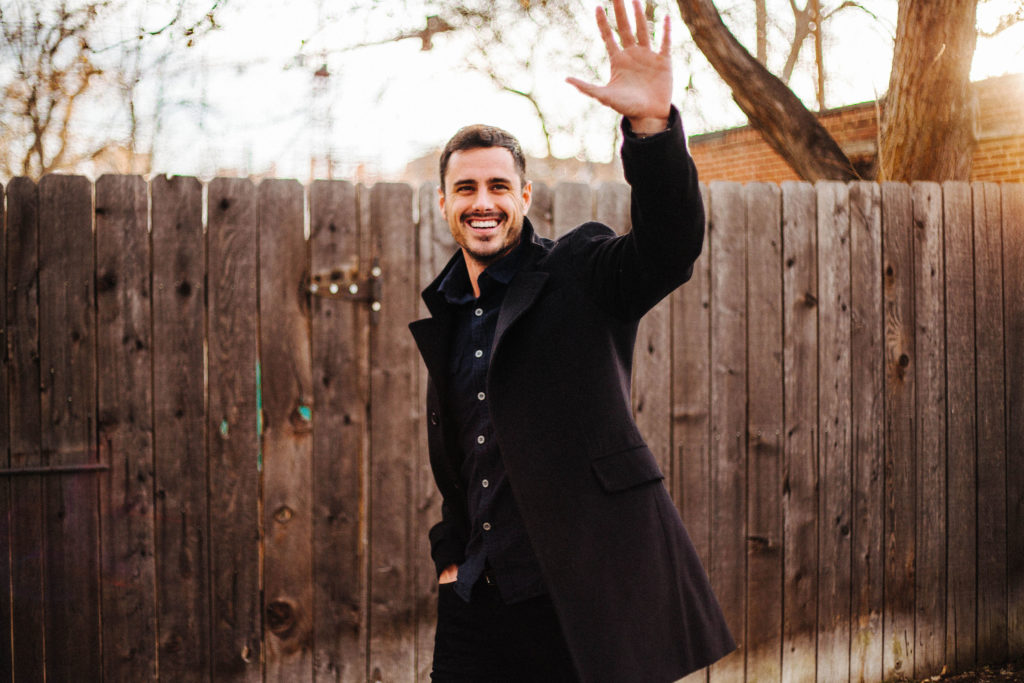
Ben Higgins: Hello, my name is Ben Higgins, I am the author of Alone in Plain Sight. Also, people probably know me from the 20th season of The Bachelor, and I’m also the founder and now still president of Generous Coffee.
So I grew up in Warsaw, Indiana, which is a little town kind of between Fort Wayne and South Bend—which if people don’t know about that, it’s two hours north of Indianapolis. I’m an only child to two loving parents.
An Idyllic Life, Shattered
Life was pretty simple. I played sports, I had four grandparents at the time. I didn’t know anybody in my life that was divorced or separated. I had great friendships. And then all of a sudden, out of nowhere, at the end of my sophomore year of high school, I got a phone call and pulled from class. And my dad had a heart attack.
Like, I think that moment is the most pivotal moment still in my life. That pain, that struggle, the desperation, the loneliness I felt in that time is still, when I look back on the moments that changed me the most, it’s that moment. It’s that hour. It’s that response that made me see the world in a different way.
You know, I didn’t feel equipped at all to handle it. I didn’t have the tools, just a swirling of emotions, of confusion, of chaos. I couldn’t process a thought, it was sending me on an emotional roller coaster all the same time. And I was super scared. It was the first time I experienced pain and the feelings of pain, the feeling of being out of control, the feeling of chaos. I grew up in a family who had a really strong faith, in a community that was very supportive of that faith, and community that really leaned on each other to talk about Jesus and talk about the blessings of the world. And don’t get me wrong, those things are great. But the city was very blessed. Nobody was really struggling deeply when it came to finances or shelter or food or water there.
So when I was told this and I experienced that pain, I started to recognize that other people around me were experiencing similar pains, that the loneliness, the desperation, the fear that I felt in those moments where something that, yes, were unique to me because it was my experience, but it wasn’t unique to others. That something about that moment, something about the desperation, something about really praying, like really getting on your hands and knees and crying and feeling like, God, I need you and I need others. And I need something here, because I don’t know if my dad is going to make it. And so if he’s gone, I need something in this moment.
No One Should Be Alone in Their Pain
You know, as I’ve gone on in life, I’ve experienced other pains, other traumas. And those things just continue for me, to build character inside of me, to build an understanding inside of me. It changes my world view. It tweaks the way I see God, the way I see others, where I see myself. And it’s something that I’m so grateful for because it has made me, I think, a better man, a better friend, a better partner, better son.
But it’s also something that I don’t want others to feel like they’re alone in. Because I think the scariest thing that we could have in our life is experiencing pain and feeling alone in that pain. I don’t know a scarier feeling than feeling alone.
“I think the scariest thing that we could have in our life is experiencing pain and feeling alone in that pain. I don’t know a scarier feeling than feeling alone.” – Ben Higgins
There’s one thing I think we can all have in common is that at some point, we’re going to experience some type of loss, some type of pain. And I know with my friends—I have great friends and I love to celebrate them, and I’ve had friends who’ve done tremendous things with their life, and I can celebrate their successes. I can invite them into my home. I can, you know, give them a hug and tell them how proud I am of them or how excited I am. And I know I mean that in that moment.
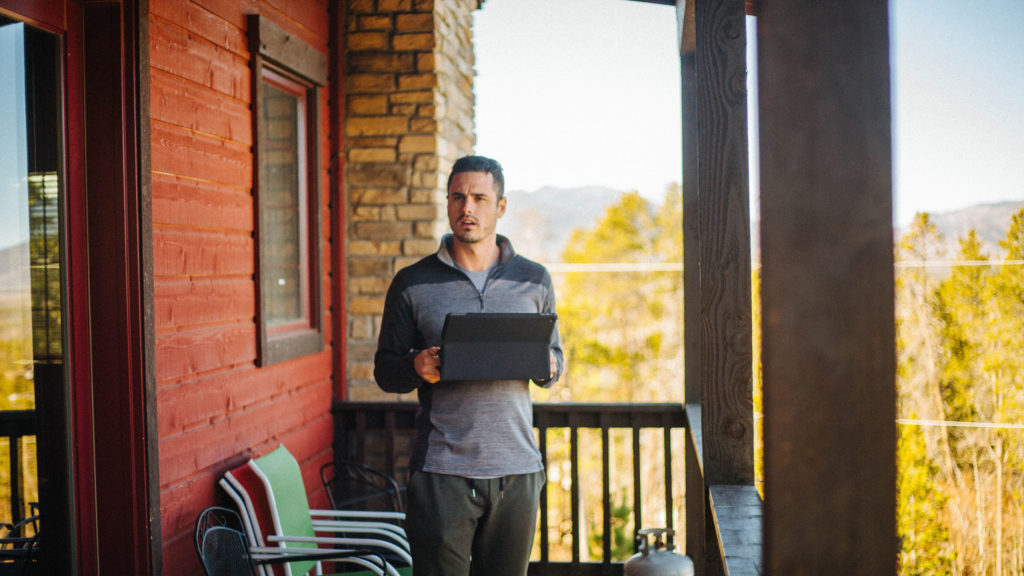
But there was always something about those moments that just felt like it fell short, like I could never fully celebrate somebody or I can never make them feel the way I knew I felt about them. There was nothing I could do with action that would let them know that, “Hey, I am so proud of you as a person.” And so then I started to think about the times that my friends have come over after divorce or came over after losing a parent or a friend, and they would sit with me on my couch. And those moments always felt like they connected us on a deeper level. There’s always a place that I can meet them at or they can meet me and my pain. That felt like we would leave the conversations in a deeper spot than we entered into. What if in those moments of pain, and we’re crying when we’re in desperation, what if those are the moments that our true self shows up and then our true friends, family, loved ones can show up for us?
And so I started to think about this theory that, yes, we can celebrate each other’s successes and we should. But what if pain is the connector? What if pain is the thing that we can look at each other and feel less alone? And what if pain is the place that we not only grasp for God, but that God enters into our pain?
“What if pain is the connector? What if pain is the thing that we can look at each other and feel less alone? And what if pain is the place that we not only grasp for God, but that God enters into our pain?” – Ben Higgins
Learning to Listen
I was at a conference and a lady spoke about that we’re in the most divisive time in United States history. And my buddy, who’s a lot smarter than me, looked at me and says, “I don’t know if I could agree with that.” And I said, “Why?” And he goes, “What is it about this time that makes it unique?”
And we started to ask people if we’re not the most divisive time, what kind of time are we in? And people start to respond with, “Well, I’ve felt more lonely than ever. I don’t feel like anybody understands me. I feel isolated. I can’t even communicate with my friends and family because it always ends in an argument and we just end up leaving each other. And then the only way that healing comes is when we just push our disagreements aside and never talk about them again. So nobody ever gets to know me. Nobody ever gets to truly understand who I am and why I believe the way I believe and what I feel or why I feel the way I feel.”
I wonder if actually in those moments we just need to meet people where they’re at, that we need to celebrate when celebration is appropriate and we need to mourn when mourning is appropriate. We need to sit in those moments and show empathy, to not say, “Hey, I have the answers,” and not even to say, “Hey, I understand,” because maybe you don’t. But to say, “I’m here, I’m always here, and no matter what you do, no matter how dark you think this story is, no matter what you’ve done, I’m going to sit here in this moment with you and I’m not going to leave.” I want to share empathy. I want to hear your story. I don’t want to argue with you. I want to understand more than be understood.
“I want to share empathy. I want to hear your story. I don’t want to argue with you. I want to understand more than be understood.” – Ben Higgins
I struggle because of the place that I lived most of my life, and this feeling of feeling a little lonely, a little misunderstood. It’s really easy for me to feel guilt and shame, like you can make me feel really bad about myself very quickly.
Jesus Calling was the devotional I read in college. You know, what I like about Jesus Calling was the relatable perspective of it. The cool part about Jesus Calling was that it never made me feel guilt or shame. It convicted me in a healthy way. It opened my eyes to a world that maybe I didn’t see before, just reminded me of good truths to who God is. And I actually think it has to start with us, because the more I become vulnerable, the more I let people understand who I am, the more that I also believe that I want to understand who others are.
“The more I become vulnerable, the more I let people understand who I am, the more that I also believe that I want to understand who others are.” – Ben Higgins
The Bachelor Opens Up New Opportunities
The Bachelor happened, this really great, cool thing that handed me a million and a half people on social media. I didn’t know what to do with it. I was confused and a little lost at the time. And we had already been starting to work in Honduras with the nonprofit, and so my buddy and I just went on a trip to kind of get away from it all up here.
So we just got a car and we drove through Honduras. And on the drive, we’re talking about Humanity Hope United, which is the nonprofit, and how many great things is going on, and so we started thinking of the idea that we could actually make form a company, sell products that are sustainably sourced, and then we could just donate the profits to the nonprofit to help this fundraising engine continue. And this was all going on in the drive through Honduras. And we happened, that evening, to pull up to a coffee plantation. And we walked out and saw coffee for the first time.
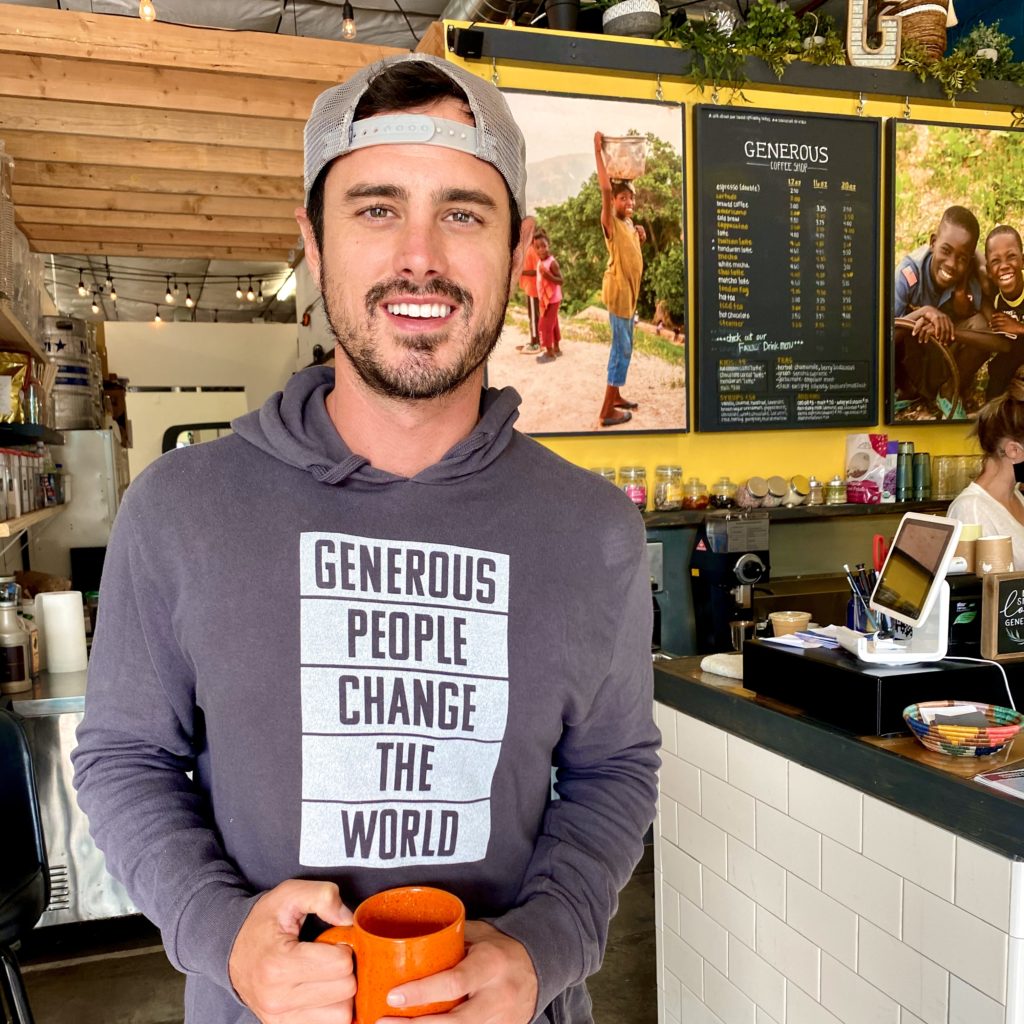
And when we left there, my buddy and I said, “I think this is what we’re going to do. We’re going to start a coffee company and we’re going to source coffee that has a story behind it. So it’s single origin, it’s traceable, at specialty grade. We’re going to sell that coffee back in the U.S. We’re going to figure out how to do it.” And we had no clue. And, “We’ll just donate 100 percent of the profits to nonprofits in need, with Humanity Hope United being our main beneficiary.”
We started it right away. We’re three years in and now we have two coffee shops. We have a really healthy online business. We sell t-shirts now that are made of plastic water bottles and jewelry made by women in the Dominican Republic. So it’s expanded. And the hope is that we can be a fundraising engine for years to come, that we can help these nonprofits flourish and focus on their mission and vision while we do kind of the fundraising work.
When I look at business or when I look at my life, it’s just saying yes to new opportunities that I know will enter me into stories that I never would be a part of unless I said yes. And we’ll see where that takes me.
Entering into Other People’s Stories
Jesus, His mission is to reach out to those who are hurting, to allow us to know that we’re not alone, that there’s a God that loves us and cares about us and will go far out of His desired way to help us know that. That’s a story I’ve heard since I was little.
But there is a unique moment in my life where that became reality. We’ve done work in Honduras for years, and my buddies and I have gone down for now fifteen years and worked with these communities and these people, built really great relationships. And about eight years ago, we put in a water well in a community called La Carosa. It’s right outside of El Progreso, Honduras. And about six months later, we went down on a trip, and one of my friends who lives in the community was sitting there, and she’s thirty-five years old. And I just asked her, “What’s it been like to have clean water? Like, this is pretty cool, right?” And she looked at me with tears in her eyes because she has three kids. And she said, “Ben, for the first time in thirty-five years, I’ve woken up without a stomach ache. For the first time in thirty-five years, I feel alive.”
And there was that moment that I remember, again, one of those worldview breaking moments where just, I mean, I’ve been around these people at that point for years, and I never had recognized, I never had empathized. I never had understood. These people in these communities are sick all the time. They feel sick all the time.
And so it was this moment when she told me her story that it hit me that if I have one life calling, if I have one job to do, that whatever it is, I want to turn to stories like hers—those are the stories that matter. It’s not because I’m some great human. It’s because those are the stories that make us feel alive, that make us feel like we’re human, that help us connect with something a lot deeper and a lot greater than ourselves. And so it was those moments that I said, “For the rest of my life, if I can enter into stories like hers, then I know I’m fulfilling a purpose that is far greater than myself.”
Narrator: To learn more about Ben Higgins’ organization Generous Coffee, please visit generousmovement.com. You can also find Ben’s book, Alone in Plain Sight, wherever books are sold.
The Jesus Calling team is grateful to the men and women who put themselves on the front lines every day, keeping our country safe and vowing to protect our freedoms. To honor that courage and resilience during a particularly difficult season, a special devotional book has been created using passages from the beloved bestselling devotionals Jesus Calling and Jesus Always to create a one-of-a-kind edition, especially for Armed Forces. With Scripture, personal reflections, and bonus material focused on first responders, this special, hardcover Armed Forces edition includes inspirational quotes, the US Army’s Mission Statement, US Navy facts, and US Coast Guard facts. Celebrate and encourage the heroes in your life with the Jesus Calling for Armed Forces edition, now available wherever books are sold and at JesusCalling.com.
John Bevere is a bestselling author and the co-founder of Messenger International, a ministry he started in 1990 with his wife, Lisa. John has a passion for helping people find their God-given purpose in life, which he details in his latest book called X, Multiply Your God Given Potential. John shares that we all have a unique purpose—no matter if we’re bagging groceries or speaking to millions of people—we just have to be open to be used by God for His good.
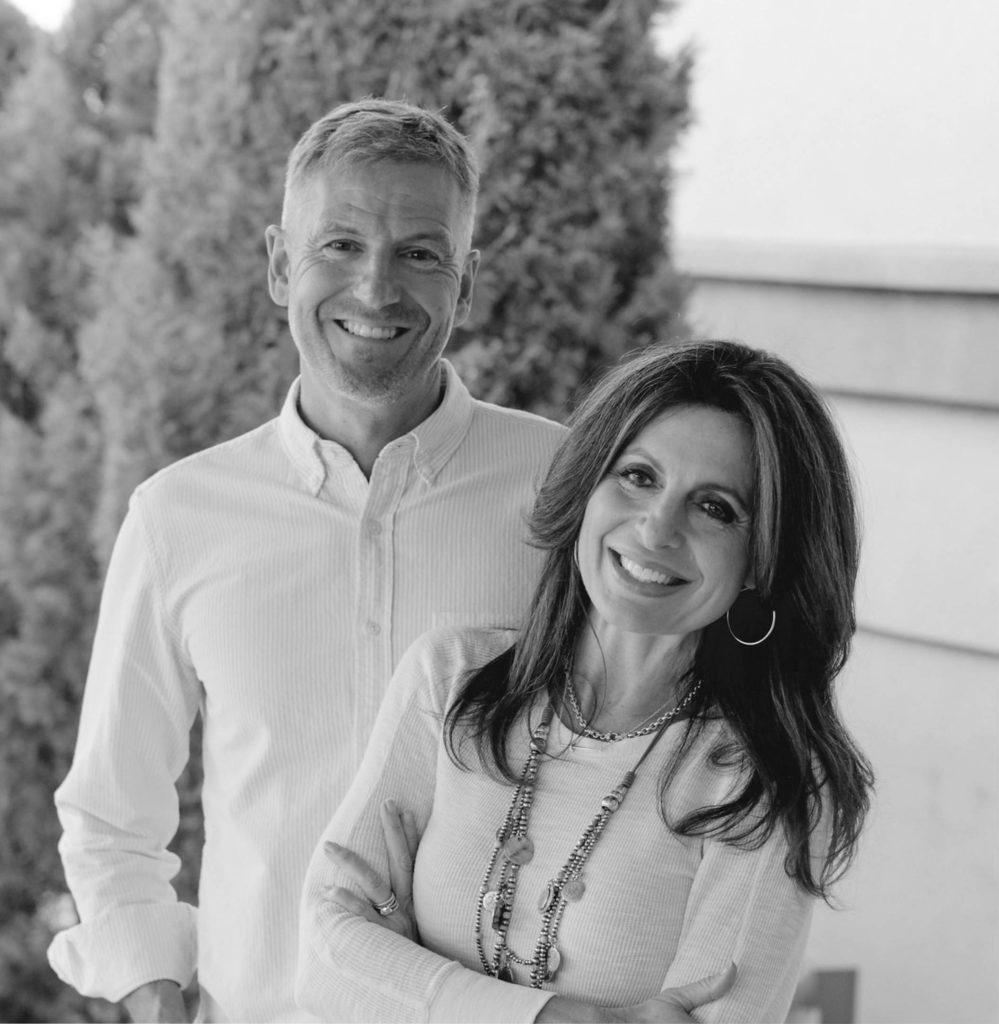
John Bevere: Hi, I’m John Bevere, I am the author of the new book, X: Multiply Your God Given Potential. Lisa and I, my wife, co-founded Messenger International in 1990. God spoke to me to begin to write in ’91, and Lisa a couple of years later, and now we have I think between us close to forty books, and they’re in 111 different languages. So, it’s been a great, great thirty years together working together in ministry and now all four of our sons are involved with us and we have a team of about fifty people here in Colorado Springs and then ninety people globally.
And to that end, God has graced us in the last ten years to give over forty-one million resources to pastors and leaders in 226 nations and 111 languages. So that’s our passion. That’s what we do.
A Message That Couldn’t Be Ignored
So when God comes to me in 1991 and says, “Son, I want you to write,” I remember where I was. It was 5:30 in the morning. I was at a construction site, my car was parked there, and the Holy Spirit said, “Son, I want you to write now.” I’m laughing, thinking, Okay, God, you have so many of us kids, you’re getting us mixed up with one another. Now you don’t want to ask me to write, talk to my English teachers, and the Lord was completely silent. And I took His silence as His agreement with my reasoning. Well, ten months later, two women come to me from two different states in the United States within two weeks of each other. And they both said the exact same words. They said, “John Bevere, if you don’t write what God is giving you to write, He will give the messages to somebody else,” and when the second woman said it from the state of Texas two weeks after the first woman in Florida, the fear of God hit me.
So this is what I did. I took a notebook piece of paper. I tore it out of a spiral notebook. And remember we don’t have iPads in 1992, and I wrote in big bold letters with a Sharpie on top, contract. I wrote a contract with God. I said, “God, I think you’re making a huge mistake. I can’t write.” And I didn’t even realize that grace was God’s empowerment in that time. But I said, “I need grace.” Remember God said to Paul, “My grace is sufficient for you, for my power.” So God refers to His grace, His empowerment works best in your weakness or your human inability. Paul made the statement. He said, “I labored more abundantly than every one of the other apostles. But it wasn’t me. It was the grace of God in me. I didn’t realize that I wasn’t mature enough in the spirit to understand that grace was God’s empowerment. It wasn’t just His forgiveness of sins, just His salvation. It was also His empowerment.” So I just said, “I need grace.”
So nobody knows why my name is on those books more than me, because my name’s on the book because I was the first guy to get to read the message. I realized they’re HIS messages from HIS divine ability—His gift to His people.
So there were three years that I just had to go on pure faith that I knew God spoke to me to write, and that obedience ended up opening up the door. I mean, if you would have said to me thirty years ago, “John, God will send you to the nations of the world through your writings,” I would have laughed you out of the room. And yet I look at when God spoke to me and it seemed insignificant. But yet Jesus said it’s the little seed, the mustard seed, that grows up into the biggest tree. So many times when the Holy Spirit speaks to us, it seems insignificant.
And I signed the contract. And now the books are in the tens of millions and they’re in 111 languages all over the world.
Everyone Has a Unique Calling from God
I wrote X, and it’s actually been a passion to write this book for seven years and I just felt no, no, no in my heart until this past year. And I’m so glad I waited, because I think if I would have written it seven years ago, I would have written it more from a prophetic vantage, whereas I feel this is the first book God has had me write as a father in the church, because of a lot of compassion, a lot of cheerleading in my heart to see people excel in what God has called them to do.
I think the best way of illustrating this message is just a couple of quick stories. We were playing golf—when I say we, it was one of our ministry partners who has helped us significantly in giving books to pastors and leaders all over the world. We were done with the round. We were heading back to the hotel, and he said it really opened up his heart to me. He said, “John, I have worked very diligently the past thirty years of my life, and now my net worth is well over nine million. My businesses are doing amazing. My wife and children are cared for for life. Why should I work? Why should I work in the decade of my fifties, the way I’ve worked for the last thirty years.” And I knew it was a real moment.
And so I said, “Well, let me answer your question with a different scenario. Suppose I say to you, I’ve written”—at that time it was seventeen or eighteen books. I said, “I’ve traveled over twelve million miles all over the world. I’ve been in over sixty countries. I have stayed in little tiny 400 square foot hotel rooms for over 200 nights a year. With my family, I have eaten strange foods, experienced different cultures, had jet lag. You know, my wife is cared for for life. My children are cared for for life. Why should I get on another plane? Why should I write another book now?” He laughed at me and he said, “I wouldn’t want to be in your shoes when you face Jesus.” And I said back to him, “Stan, you just said the exact same thing as I said.”
And he had a look of shock on his face and he said, “What are you talking about?” He was actually almost a little upset with me. And I said, “Well, Stan, every single one of us has a calling on our lives.” And that’s why I love this program Jesus Calling. And I said, “With the calling comes gifts to help us accomplish that calling.” And I said, “We are stewards of these gifts and we can do one of three things with them. We can use them as intended, to build the kingdom. We can use them only for ourselves in our family, or we can sit on them and not use them at all.” I said, “You see my gifts, which is writing and speaking and leading.” And I said, “You’ve connected my dots.” But I said, “The problem is you’ve not connected your dots between how your gifts operate and how to build the kingdom.” And I remember he had a real paradigm shift.
I hope by this message that first and foremost, people’s paradigms will be shifted. They will understand it every bit that every person is every bit as called as Mother Teresa, as Billy Graham. If they realize this, they’ll have the same passion as Billy Graham and Mother Teresa. If we look at these gifts and this is the part of the message that really is important, the callings on our lives are beyond our natural abilities.
“The callings on our lives are beyond our natural abilities.” – John Bevere
I remember at first when COVID started back in April, I was out praying and I kept asking, “Why did I write this book?” And around June, the Holy Spirit spoke to me and He said, “I’ve always had you write books that when they come out, they’ll be appropriate to the time.” And then He started showing me something with the message of mainstream media and social media with the divisions, with the COVID, with the election stress that has caused people to want to protect, to want to hide, to want to drawback, when in reality Jesus said, “Occupy until I come.”

So right now is an opportunity for the world who is scared, who is trying to protect and hide.m Many of them see believers with a passion and a purpose. And yes, that guy who stocks groceries in the grocery store shelf, he’s vital to building the kingdom. If he commits himself and his labor to the Lord now, God may move him into another area. But that doesn’t lessen or weaken or diminish what he’s doing in that supermarket. He’s valuable. And one of the big things that Paul says that I think gets overlooked, he says, “Whatever you’re doing, do it as unto the Lord.” And I believe when we dedicate what we do unto the Lord and then we say, “No, God, you put me in this place. I want supernatural ability. I want to be the most outstanding.” The stock person in the grocery store, it’s going to cause people to ask questions. It’s going to take managers to look. Well, first of all, you’re not going to stay there, probably because you’re multiplying what belongs to somebody else. Jesus said if you’re not faithful in that which is another who’s going to give you your own, you now will be promoted because you see a man who’s diligent in his work. He will stand before kings. His gift will make room for him. So, you know, that’s the beginning.
Being faithful means multiply, even if you’re working for somebody else. If you’re a line worker at the factory, if you’re a janitor, you multiply where God has placed you. Be faithful, believe for the supernatural gifting to multiply, to shine as a light in that arena. And God will continue to promote you, to where to Him—Jesus says in that parable, the person who multiplied more will be given and he or she will have an abundance. But to him who doesn’t multiply, even the little they have will be taken away. I want to see God add an abundance to every single person listening to us. And when you hear the word abundance, don’t check out. Abundance is the ability to impact people’s lives. Abundance is not about how much you have for selfish purposes.
“Being faithful means multiply, even if you’re working for somebody else. If you’re a line worker at the factory, if you’re a janitor, you multiply where God has placed you. Be faithful, believe for the supernatural gifting to multiply, to shine as a light in that arena.” – John Bevere
Amplifying Our Gifts to Impact Many
I think what really sparked our heart in regard to the international is trips to the Middle East, trips to Asia, trips to Africa. When I saw how desperate people were for one book in America—you see books on my bookshelves. A book is nothing to us in America. But when you see people in Vietnam walk five hours from the mountain, then sit on a concrete floor for four hours and wait for one book, they are desperate for teaching.
God has called us to take what is uniquely gifted in us and multiply it to impact many. If you look at God’s first commandment, it was be fruitful and multiply. Jesus amplifies that in the parable of the talents, the two that multiplied were called faithful. The one who maintained, who didn’t multiply, was called lazy. We don’t ever want to hear Jesus say to us that we were lazy. We want to multiply what He’s entrusted to us. So every person listening to me right now has a gift on their life, the Bible says. And 1 Peter 4:10, every believer has at least one gift. So that gift on your life is not for you. It’s for the people that in your world of influence that God is sending you to. So if you don’t operate in your gift, then the people in your world of influence don’t get what God intended them to get. This is why Paul talked about his gift. His gift was revelation, knowledge. But he said, “This woe is me if I don’t operate in that gift.” Woe is a very serious word. So Paul was saying, “If I don’t operate in this gift, I’m going to have to give an account to God.” And that’s why he was so firm with Timothy. “Timothy, that gift in you is not for you. It’s for the people you’re sent to. It’s dormant. Stir it up.” And so what stirs up our gifts is our faith and faith comes by hearing.
“God has called us to take what is uniquely gifted in us and multiply it to impact many. If you look at God’s first commandment, it was be fruitful and multiply.” – John Bevere
To be really honest with you, that’s what will make me a truly happy man, is if I know that I’ve done everything I’ve been entrusted with to get the message of Jesus Christ into the hands of every human being on the planet.
“That gift on your life is not for you. It’s for the people that in your world of influence that God is sending you to. So if you don’t operate in your gift, then the people in your world of influence don’t get what God intended them to get.” – John Bevere
Narrator: To learn more about John’s book, X Multiplying Your God-Given Potential, visit, MessangerInternational.org.
If you’d like to hear more stories about people using their gifts to help the world, check out our interview with talk show host Cynthia Garrett.
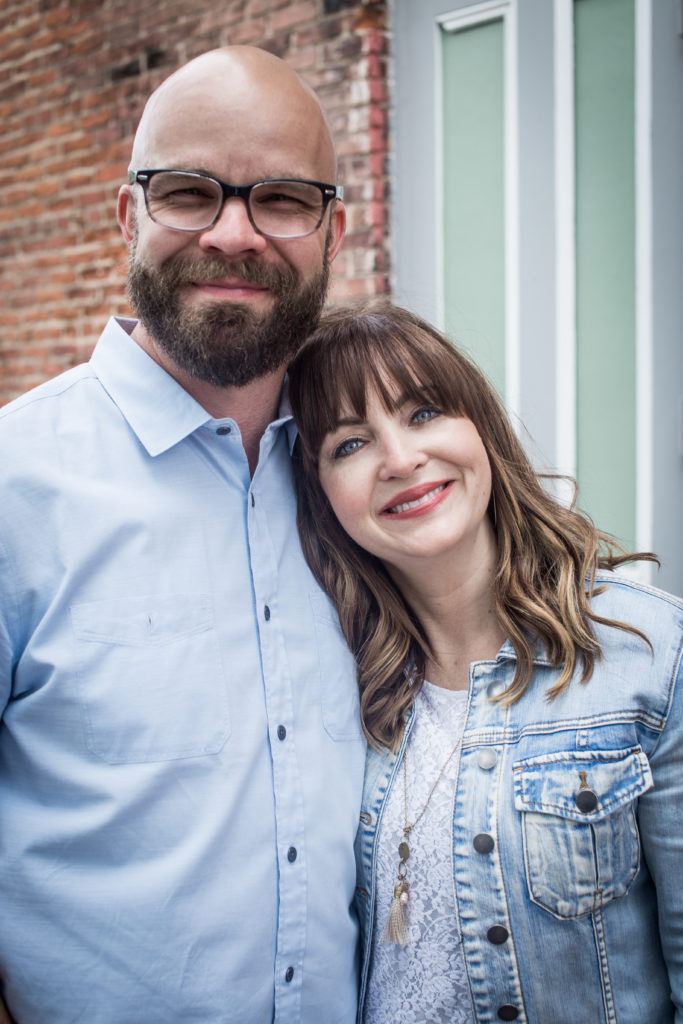
Narrator: Next time on the Jesus Calling Podcast, we speak with Patrick and Ruth Schwenk.
Patrick is a husband, father, and pastor. Ruth is a wife, mom, and blogger. Married for more than seventeen years, with four children, and in ministry for over 15 years, their relatively peaceful lives were rocked by Patrick’s cancer diagnosis in 2018. Patrick describes how he relates this time of fear and chaos to the fear and anxiety the disciples had when Jesus was teaching them hard lessons keeping their heads above water.
Patrick: There’s just some things that we can only learn in the middle of a lake. You know, we can go to a coffee shop and read our Bible or read a devotional or listen to worship music and go to church. And yet there’s just some things that God can only teach us in the middle of chaos and not a classroom. And so Jesus does that with His disciples. I mean, He promises that He’s gonna get them through and He tells them He’s gonna take them to the other side of the lake. But it’s when they’re in the middle of the lake where they begin to see some things about themselves that they hadn’t seen before.
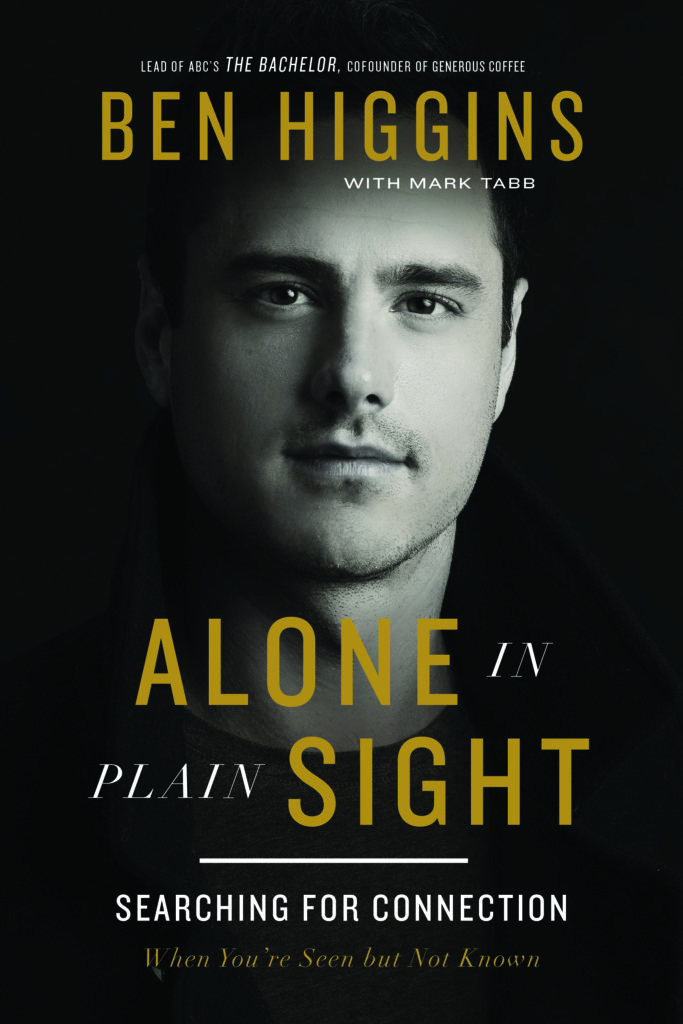
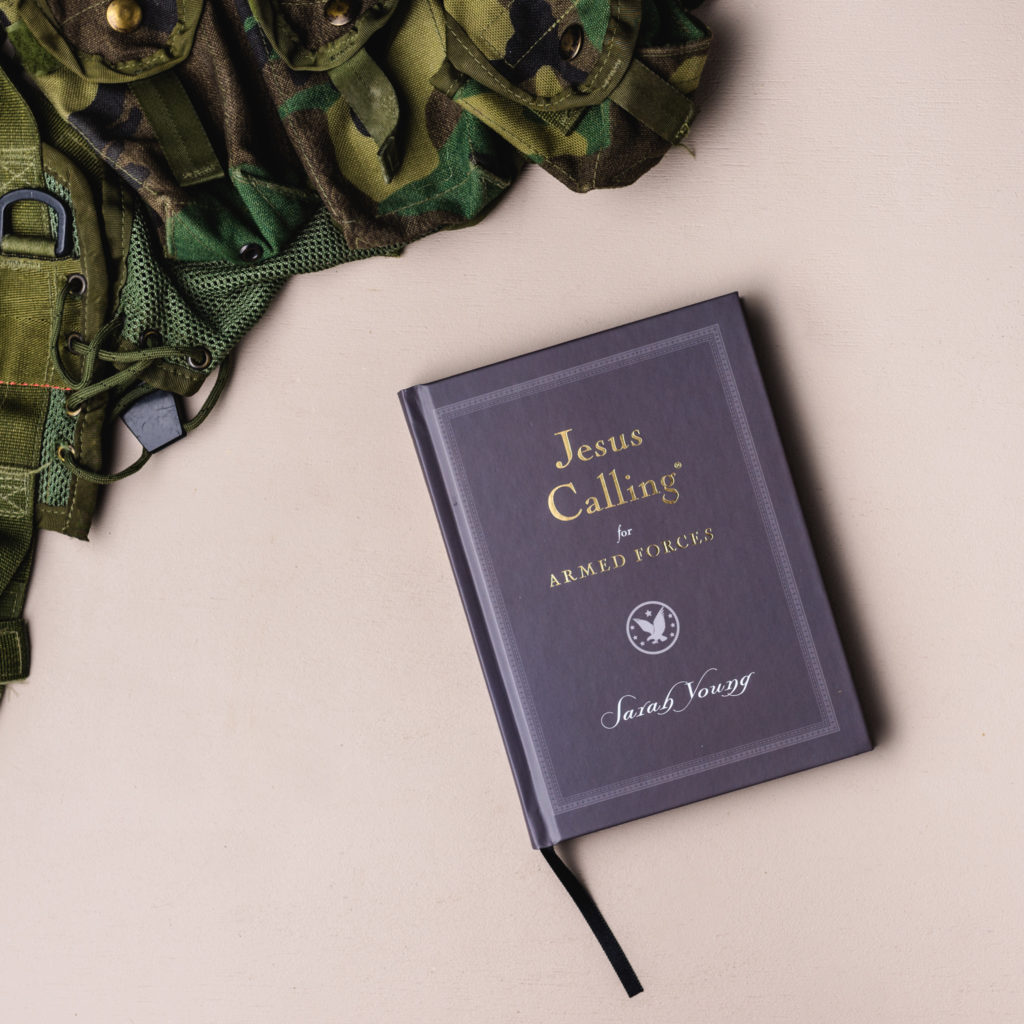

I listen to your podcast before I go to work on Thursday mornings! I love to hear how God is on the move in peoples lives! To God be the glory, great things He hath done!